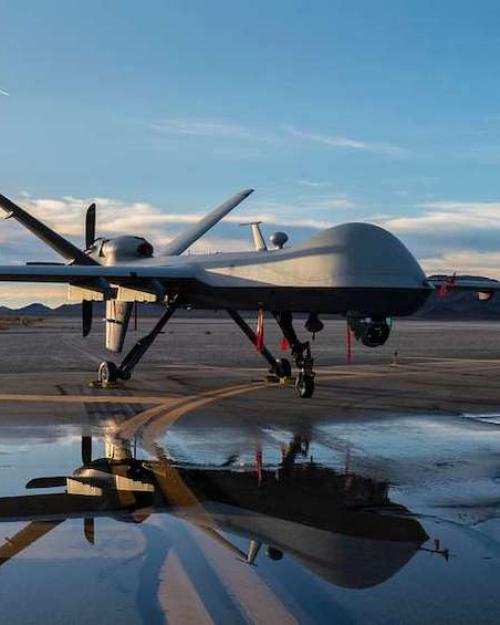Russia has accused Ukraine of launching drones targeting President Vladimir Putin. Kyiv has denied involvement and has suggested this could be used as a pretext for a new Russian attack inside Ukraine.
Paul Lushenko is a lieutenant colonel in the U.S. Army, senior policy fellow at Cornell’s Tech Policy Lab, and co-editor of "Drones and Global Order: Implications of Remote Warfare for International Society." If legitimate, Lushenko says the attack will have significant impacts on international security and the global order.
Lushenko says:
“If legitimate, this attack suggests that the norm against political assassination, a key pillar of global order since the Cold War, may be eroding. Former U.S. President Donald Trump’s use of a drone to kill Iranian Major General Qasem Soleimani, coupled with similar uses of drones across the globe, implies we may be really moving into an ‘age of open assassination.'
“It is no longer a matter of if contestable political leaders will be the target of drone attacks, but a matter of when. This puts a premium on active and passive defense, including enhanced air defenses and deception.
“Though drones may have helped shift the offense-defense balance in Ukraine’s favor, they are potentially more escalatory than security scholars assume. Putin may use the attack, even if a ‘false flag’ operation, to redouble his efforts in Ukraine. This would contradict survey research that suggests drones, because they are operated remotely, are understood by leaders as less threatening.”
David Silbey, associate professor of history, specializes in military history, defense policy and battlefield analysis. He says such decapitation strikes are not altogether uncommon in warfare.
Silbey says:
“The U.S. started the 2003 Gulf War with an attempt to take out Saddam Hussein. There have apparently been a number of assassination attempts on Zelensky during this war.
“This drone strike seems to me to be one of two things – a genuine attempt by the Ukrainians to take out Putin, and hopefully have him replaced by someone who isn’t as committed to the Russian war effort. Even if it doesn’t succeed, the Ukrainians might figure, it’s still a bold statement about how close they can get to him.
“Or it could be a Russian false flag operation designed to be used as an excuse to justify some kind of escalation. They’ve already tried assassinating Zelensky. The same logic of deterrence with nuclear weapons still applies. Mass strategic bombing of Ukrainian cities are potentially more plausible. The missile strikes so far have been nasty but not at the level of a sustained bombing campaign.”
For interviews contact Adam Allington, 231-620-7180, adam.allington@cornell.edu




